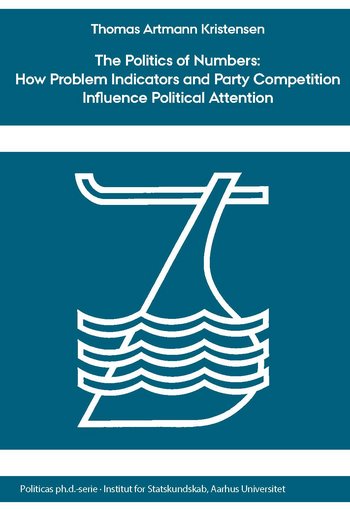Thomas Artmann Kristensen
The Politics of Numbers: How Problem Indicators and Party Competition Influence Political Attention

How do parties respond when economic figures plummet or crime rates skyrocket? How much do parties focus on these numbers, and how do they balance their response with their desire to focus on other issues that are perhaps more important and advantageous to them? Do opposition and government parties respond differently? Is it mostly indicators of widely agreed upon problems, e.g. unemployment, that affect a lot of people which generate attention or do more divisive problem indicators on e.g. social inequality also attract attention? These are some of the questions asked in the dissertation. The empirical data covers 10 Western parliamentary democracies, 19 issues and a variety of communication channels for parties, including parliamentary questions, party manifestos and speeches over more than five decades. The findings show that information from problem indicators, especially how the numbers compare to other countries, generates political attention. This positive effect of problem indicators is close to universal, as it is documented across parties with and without issue ownership, government and opposition parties, problems that affect few and many people, are visible and invisible to people etc. The findings enhance our understanding of how information about societal problems structures and facilitates party competition, challenging existing accounts of party competition, which tend to depict party competition as unfolding in isolation from the real world and its abundance of information. The dissertation will be of interest to scholars who study party competition and political agenda-setting, and to academics and practitioners working with performance information in the public sector.
![]() Ophavsretten tilhører Politica. Materialet må ikke bruges eller distribueres i kommercielt øjemed.
Ophavsretten tilhører Politica. Materialet må ikke bruges eller distribueres i kommercielt øjemed.